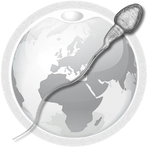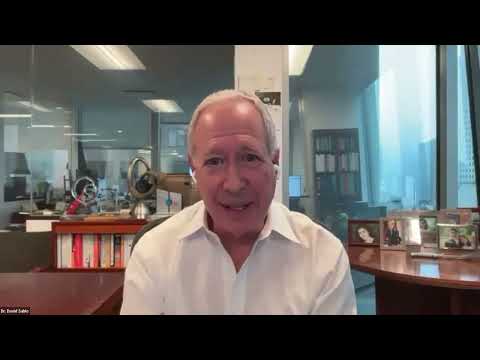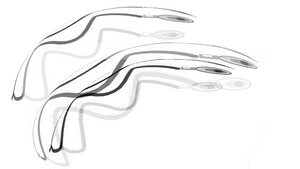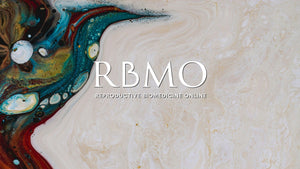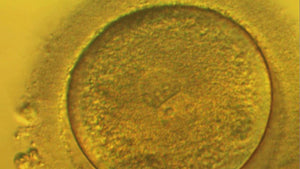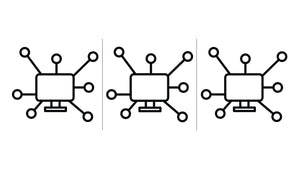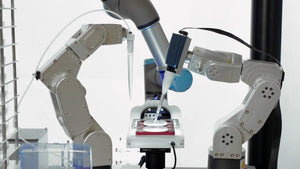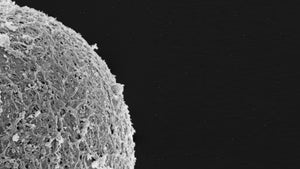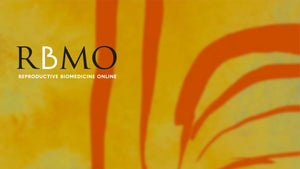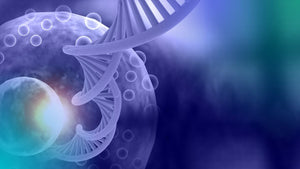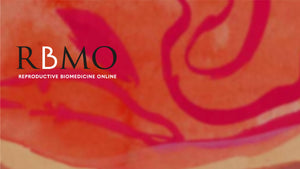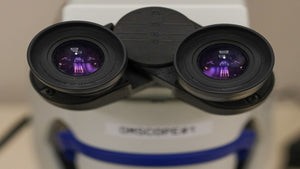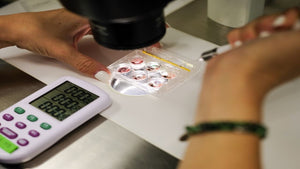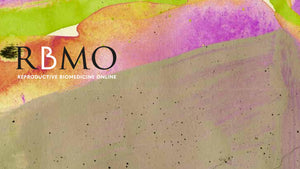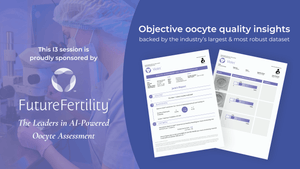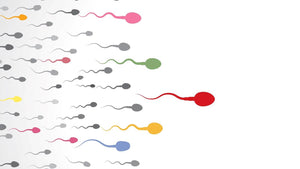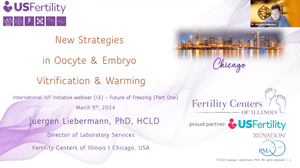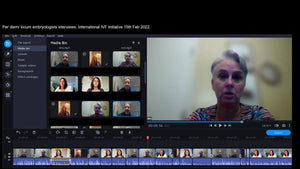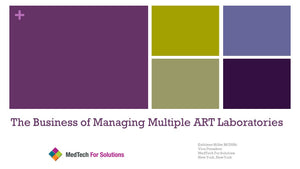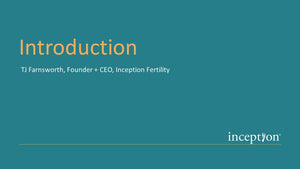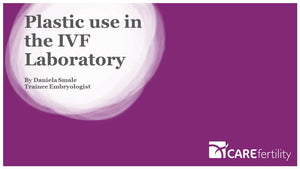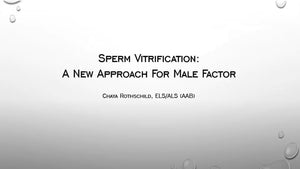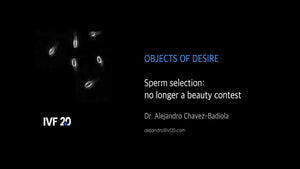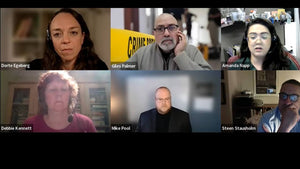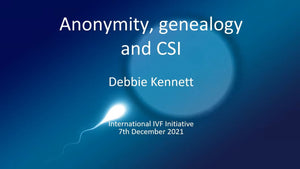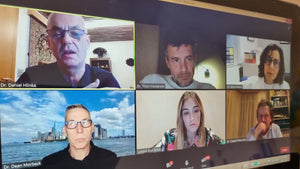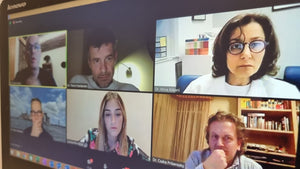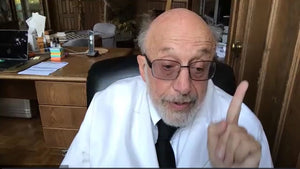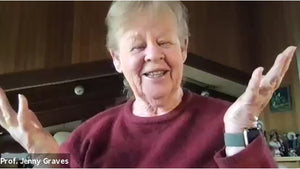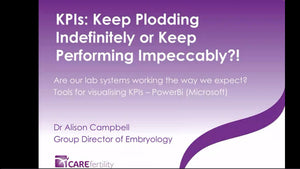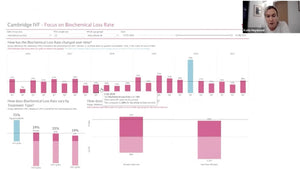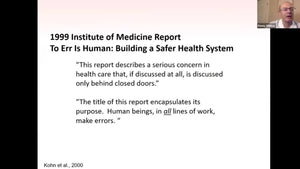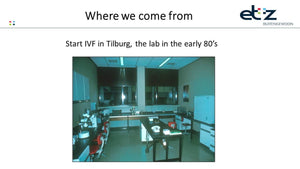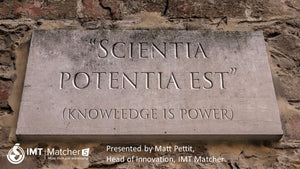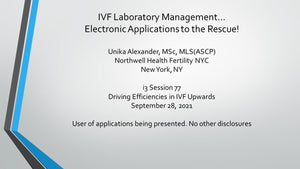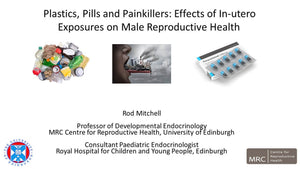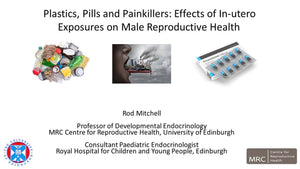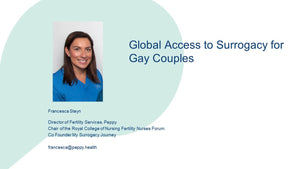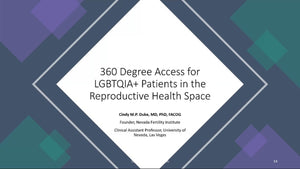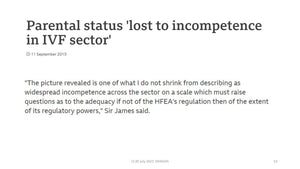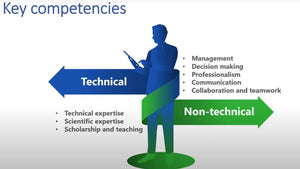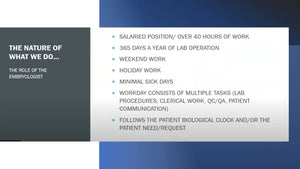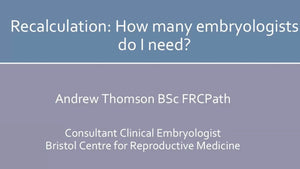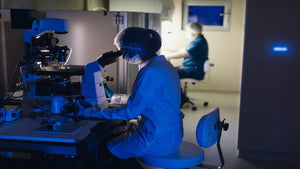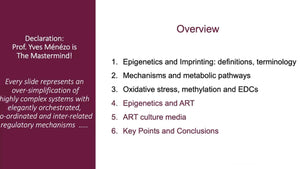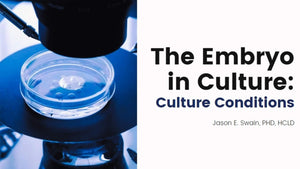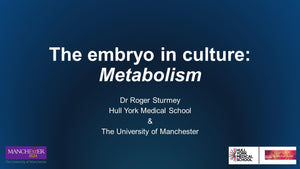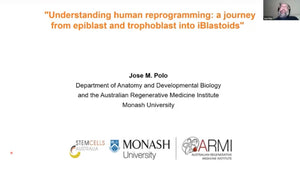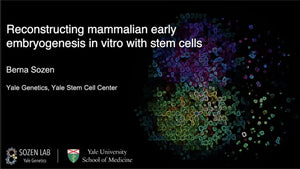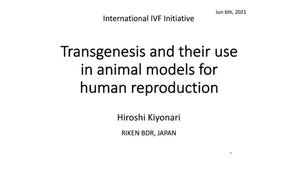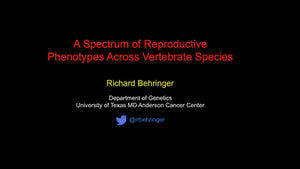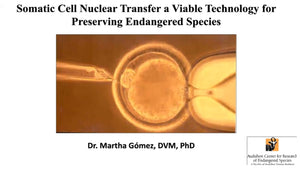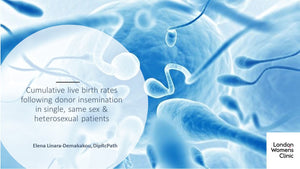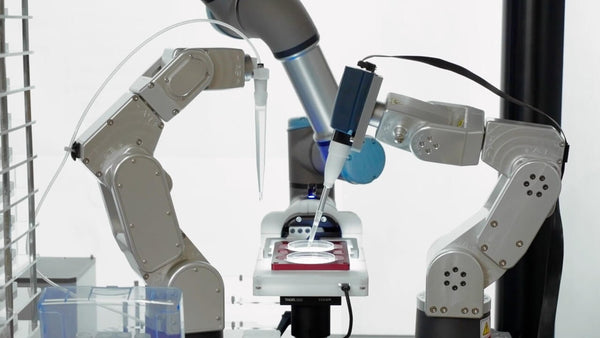
Session 155: Automation in the IVF Lab

Donate
At the International IVF Initiative, we are committed to providing free access to our educational sessions, webinars, and resources for professionals and individuals passionate about advancing reproductive medicine. We believe that cost should never be a barrier to knowledge and collaboration. By contributing, you’re ensuring that valuable educational resources, expert insights, and collaborative opportunities remain open to all without financial barriers. Together, we can continue to foster a global community dedicated to innovation and excellence in the field of IVF.
Your Donation
Thank you!
Session 155: Automation in the IVF Lab: From Manual to Machine Precision
Tuesday June 17th, 3pm EST / 8pm BST/ 9pm CET
This webinar is kindly sponsored by Conceivable Life Sciences
Hosts:
Dr. David Sable and Dr. Cristina Hickman
Introduction by Dr. David Sable “Executive Order”
Presenters:
Dr. Alejandro Chavez Badiola “Look inside the Aura”
Dr. Jason Swain “The evolving role of the Lab Director/Embryologist: What does the future hold in store?“
Dr. Gerardo Mendizabal Ruiz “Embryoneering the IVF lab”
Q and A
Synopsis
The i3 webinar, *“Automation in the IVF Lab: From Manual to Machine Precision,”* provided a comprehensive and forward-looking exploration of the role of automation in assisted reproductive technology (ART). Co-hosted by Dr. Cristina Hickman and Dr. David Sable, the session convened leading figures from the fields of embryology, reproductive medicine, artificial intelligence, and biomedical engineering to examine the current state and future trajectory of automation within the IVF laboratory.
The session commenced with an introduction by Dr. David Sable, titled “Executive Order.” Drawing on his background as a physician, academic, and investor, Dr. Sable offered a contextual overview of the shifting technological landscape in ART. He emphasized the growing need for precision, reproducibility, and scalability in laboratory operations, setting the stage for the subsequent presentations.
Dr. Alejandro Chávez Badiola, Co-Founder and Chief Medical Officer of Conceivable Life Sciences, delivered a presentation entitled *“Look Inside the Aura.”* He detailed the conceptualization and realization of the world’s first fully automated IVF laboratory. His discussion focused on the integration of artificial intelligence tools, including SiD for sperm selection and ERICA for embryo ranking, and highlighted the significance of achieving the first AI-assisted live births using these platforms. Dr. Chávez Badiola also addressed the clinical and operational implications of transitioning from conventional IVF to what he has termed “IVF 2.0.”
Dr. Gerardo Mendizábal Ruiz, Vice President of Product Engineering at Conceivable Life Sciences and Director of the Autonomous Systems Lab at the University of Guadalajara, presented *“Embryoneering the IVF Lab.”* His talk addressed the engineering strategies and AI applications underpinning the development of automated micromanipulation systems, including the first fully automated ICSI platform. His perspective, grounded in biomedical engineering and computer vision, underscored the technical sophistication required to replicate and exceed human-level precision in laboratory procedures.
Dr. Jason E. Swain, Chief Laboratory Officer and President of Lab Operations for the CCRM IVF Laboratory Network, presented *“The Evolving Role of the Lab Director/Embryologist: What Does the Future Hold?”* With oversight of 16 IVF laboratories across North America, Dr. Swain offered a systems-level view of how automation is influencing laboratory design, staff training, workflow standardization, and overall quality assurance. He also discussed the shifting professional landscape for embryologists and the strategic considerations for laboratory leadership in an era of rapid technological adoption.
Dr. Hickman provided valuable synthesis and critical commentary throughout the event, linking the technological developments presented with broader trends in clinical practice and innovation in reproductive care.
The webinar concluded with a live question-and-answer session, allowing attendees to engage directly with the speakers. Topics addressed included regulatory challenges, clinical validation, ethical considerations, and the operational readiness of automation in IVF settings. The event offered a nuanced and highly informative account of the transition from manual processes to machine-driven precision in reproductive medicine, underscoring both the opportunities and responsibilities that lie ahead as the field continues to evolve.
Dr. David Sable
David Sable MD is a physician, academic, and investor with a long career in reproductive endocrinology and life sciences. He earned his M.D. from the University of Pennsylvania in 1986, following a B.S. from the Wharton School in 1981. He did his residency in Obstetrics and Gynecology at New York Hospital-Cornell Medical Center, and a fellowship in Reproductive Endocrinology and Infertility at Brigham and Women’s Hospital in Boston. He is board-certified in Obstetrics and Gynecology (1994) and Reproductive Endocrinology (1997), and a past Fellow of both the American College of Obstetricians and Gynecologists and the American College of Surgeons.
Dr. Sable has held academic appointments at Harvard Medical School and Columbia University, where he teaches Entrepreneurship in Biotechnology in the Department of Biological Sciences. He co-founded the Division of Reproductive Endocrinology at Saint Barnabas Medical Center, and embryo diagnostic company Reprogenetics, later acquired by Cooper Surgical. His management positions include healthcare analyst at Deutsche Bank and portfolio manager of the Special Situations Life Sciences Fund and the Special Situations Life Sciences Innovation Fund. He holds advisory and director positions for several biotech companies, including Hamilton Thorne Ltd., TMRW Life Sciences, Celmatix, AutoIVF Inc., Conceivable, and Evvy, and was a member of the board of directors of RESOLVE, which in 2023 awarded him the Barbara Eck Founders Award for lifetime achievement. He is also the recipient of the American Infertility Association’s Family Building Award and RÉSOLVE of New Jersey’s Zenith Award.
Dr. Cristina Hickman
Dr Cristina Hickman, founder of Avenues, leads the world’s first fully AI-integrated IVF clinic. With a PhD from the University of Edinburgh, she is a published scientist in Nature, Human Reproduction, and Fertility & Sterility, and is regularly invited to speak at global fertility conferences. An HCPC-certified clinical scientist, Cristina has over 25 years’ experience as a senior consultant embryologist and lab director at leading UK clinics including Care Fertility and TFP. She has consulted with over 250 clinics in more than 20 countries and helped build 13 IVF labs worldwide. Her entrepreneurial vision has transformed fertility care. She developed Boston Place Clinic, the first designed for Time-Lapse tech; Aria Fertility, the first fully digital clinic; and Avenues, which integrates AI across every patient touchpoint. Cristina also co-founded AIFertility.org and helped develop AI and robotics driven technologies in a range of start-ups such as Chief Clinical Officer at Fairtility, CSO at Apricity, Executive Director at TMRW, amongst other start-ups—combining academic insight, clinical excellence, and innovation to advance reproductive care.
Dr. Alejandro Chavez Badiola
Dr. Alejandro Chavez Badiola specializes in human reproduction with a focus on innovation and accessibility. As Co-Founder and CMO of Conceivable Life Sciences, he leads development of the world's first automated IVF laboratory. He also founded IVF 2.0, pioneering AI applications in reproductive medicine, including the first AI systems for sperm selection (SiD) and embryo ranking (ERICA).
With a PhD in Reproductive Genetics and training from Liverpool Women's Hospital, Dr. Chavez Badiola has achieved significant milestones, including the world's first live births using AI-assisted sperm selection (2020) and embryo selection (2019).
He serves on the Technology Committee of the American Society for Reproductive Medicine and has published extensively in leading journals. Dr. Chavez Badiola is committed to addressing global reproductive challenges through democratized access to fertility technologies
Dr. Jason Swain
Jason E. Swain, PhD, HCLD is the Chief Laboratory Officer and President of Lab Operations of the CCRM IVF Laboratory Network, overseeing a growing network of 16 clinical IVF laboratories in North America. He is responsible for laboratory design, protocol/procedure implementation, as well as staff training and ongoing quality control monitoring for the network embryology, andrology and endocrinology laboratories. Jason also oversees quality control of the CCRM Donor Egg Bank.
Dr. Swain is an Adjunct Clinical Associate Professor in Obstetrics and Gynecology at Rutgers University as well as at the University of Minnesota. He completed his BSc at Hillsdale College in his native Michigan, his MSc in Animal Science at Purdue University and his PhD in Molecular & Integrative Physiology at the University of Michigan in the lab of Dr. Gary Smith, PhD, HCLD. He then had clinical embryology training with Thomas “Rusty” Pool in San Antonio, TX, before becoming a Clinical Associate Professor in the Department of OB/GYN and IVF lab director at the University of Michigan.
Dr. Swain has published over 45 peer-reviewed articles, edited and authored several book chapters and contributed to various other publications within the field of assisted reproduction. Dr. Swain has served on various committees for ASRM, ESHRE, PCRS and other organizations focused on assisted reproduction.
He has given numerous regional, national and international invited lectures on various topics related to the IVF laboratory, is an Associate Editor for the Journal of Assisted Reproduction and Genetics, sits on the editorial board for six journals and acts an ad hoc reviewer for over 25 others. His primary research interests include pursuit of methods to improve in vitro embryo culture conditions through reduction of environmental stressors via modification of both the physical and chemical culture environment.
Dr. Gerardo Mendizabal Ruiz
Dr. Eduardo Gerardo Mendizábal Ruiz is a Mexican computer scientist and researcher specializing in artificial intelligence, computer vision, and biomedical engineering. He earned his Ph.D. in Computer Science from the University of Houston in 2012, following a master's degree in Computational Mathematics from the Centro de Investigación en Matemáticas (CIMAT) and a bachelor's degree in Electronic Engineering from ITESO. Currently, he serves as a Professor and Director of the Laboratory of Autonomous Systems for Biotechnological Design at the University of Guadalajara's Department of Translational Bioengineering.
Dr. Mendizábal Ruiz has made significant contributions to the application of AI in reproductive medicine. As Vice President of Product Engineering at Conceivable Life Sciences, he played a pivotal role in developing the first fully automated intracytoplasmic sperm injection (ICSI) system, leading to a successful birth. His work bridges academia and industry, advancing AI-driven solutions in healthcare.
